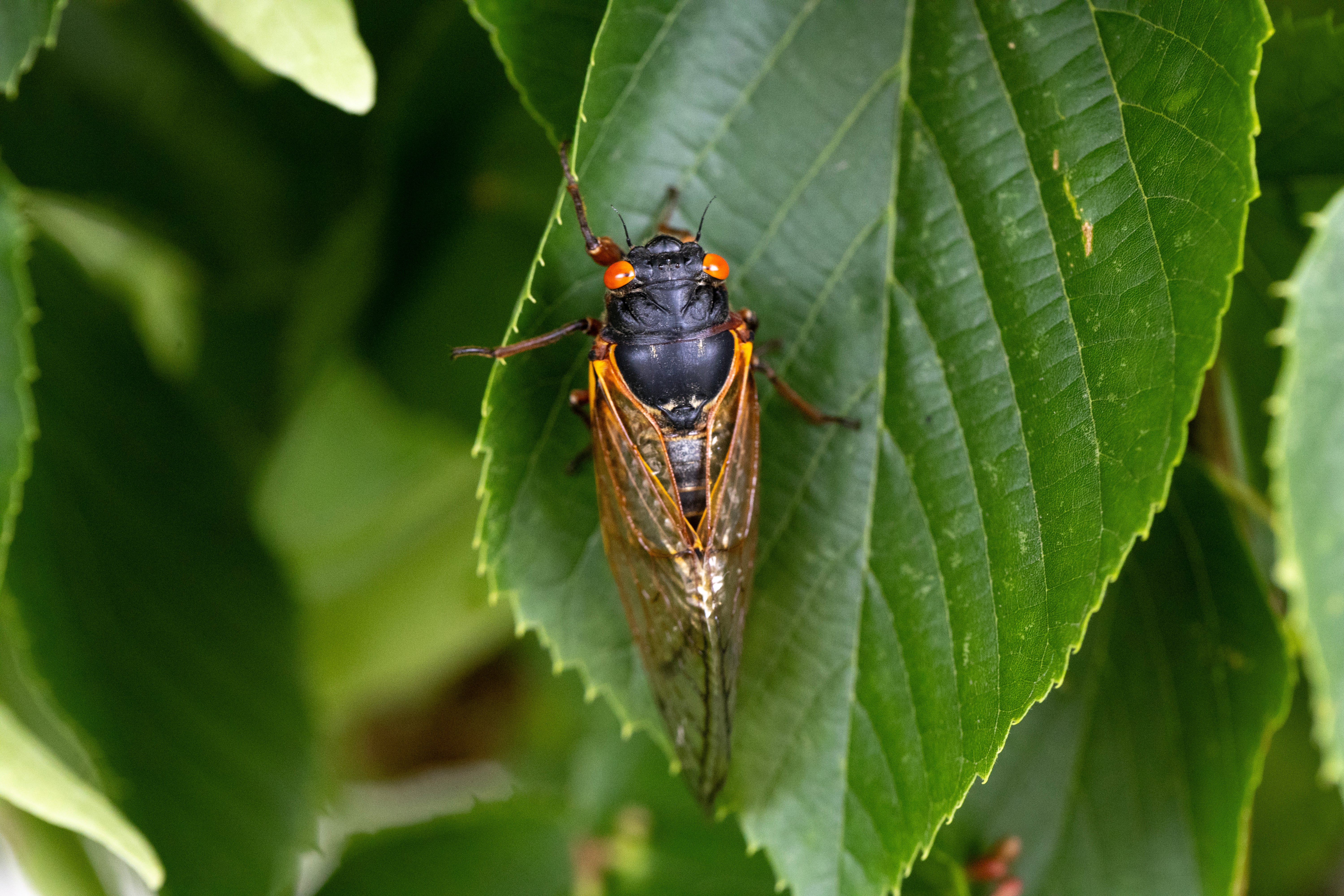Cicadas are back, and their reemergence is causing chaos beyond the typical noise they emit.
Brood XIV emergence will be largely concentrated in Kentucky and Tennessee, but Georgia, Illinois, Indiana, North Carolina, Virginia, West Virginia, along with parts of Ohio, Pennsylvania and New York will also see the insects.
In Ohio, visitors at Kings Island — a theme park near Cincinnati — have shared videos of the cicadas taking over trees and spreading out across the park's grounds. One TikTok video by user Summer Balser shows her family doing their best to step around the insects as they traverse the park.
Dr Gene Kritsky from Mount St Joseph University told WCPO that park goers should just try to enjoy to novelty of the experience as there's nothing that can be done to stop the insects. And, he added another piece of advice: "when you're on the ride, keep your mouth closed."
That said, cicadas grossing visitors out at a theme park is better than the bugs wrecking someone's car - which was the case in Blue Ash, Ohio.
“We’re all well aware that these pesky cicadas don’t respect personal space, including while driving,” the town's police department wrote in a social media post. They detailed how a cicada flew into a car window, startled the driver and caused them to lose control.
The post contains a photo of a damaged car flipped on its side. Thankfully, no one was hurt in the crash.
“It may be a good idea to keep the windows up for the next several weeks. As you can see, a cicada attack can be dangerous,” the department wrote, noting that the insect assailant fled the scene of the crime.

Outside of causing car wrecks and being generally gross, loud, and annoying, cicadas are harmless to humans.
The U.S. has seven broods of periodical cicadas, which emerge in 13- and 17-year cycles, and while the insects are mostly benign, they can cause damage to small trees or shrubs if too many of them concentrate on one plant, according to the University of Connecticut.
The university advises orchard and nursery owners to avoid planting young trees or shrubs in the years preceding an emergence of periodical cicadas due to the threat they pose to the young plants.
If one does have young trees and shrubs, the best way to protect them from the bugs is to physically cover them with a screening material to limit the insects' access to the plant.
Pesticides are generally not effective due to the sheer number of the insects when they emerge.
A trillion loud bugs are about to descend on the US for the first time since 1803
AP PHOTOS: Cicadas swarm parts of US as the screaming insects emerge in Brood XIV's 17-year cycle
The surprising health benefits of eating insects
‘Touron’ sparks outrage after walking toddler up to wild bison inside Yellowstone
Hegseth says the Pentagon has contingency plans to invade Greenland if necessary







